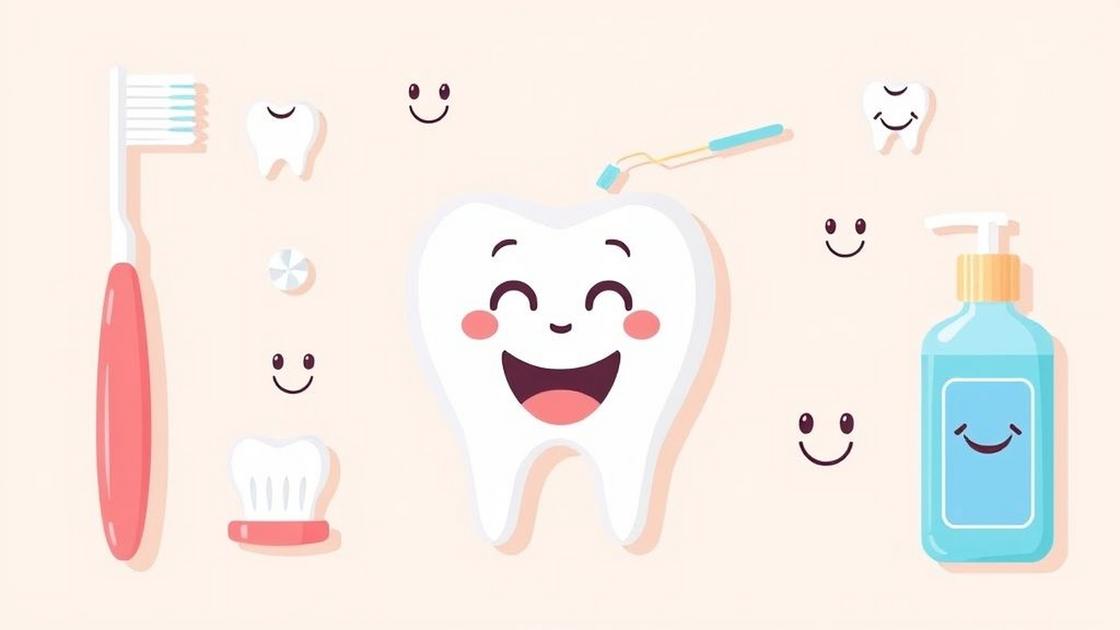Have you ever experienced the discomfort of sensitive teeth in your daily life? It can feel like a constant reminder of the challenges we face, especially when enjoying our favorite foods. Many women understand this silent struggle and how it affects our mood, confidence, and overall happiness. Fortunately, there are natural remedies that can help alleviate this pain. In this article, we’ll explore effective ways to stop sensitive teeth pain naturally and improve your dental health.
Understanding Sensitive Teeth: Causes and Symptoms
Sensitive teeth can be a source of discomfort that many women over 30 experience. The pain often kicks in during activities such as eating hot or cold foods, drinking soda, or even breathing in cold air. This sensitivity usually stems from exposed dentin, which can occur due to various factors.
Common causes include:
- Gum Recession: Gums can recede due to aging or gum disease, exposing tooth roots.
- Enamel Erosion: Foods and beverages high in acid can wear down enamel, increasing sensitivity.
- Grinding Teeth: Stress often leads to teeth grinding, which can damage enamel.
- Dental Procedures: Recent fillings or teeth whitening can temporarily heighten sensitivity.
Symptoms of sensitive teeth include sharp pain, a dull ache, or a tingling sensation when consuming cold, hot, or sweet items. It’s important to listen to your body; if you encounter these symptoms, it’s time to explore solutions!
Natural Remedies You Can Try at Home
There are several natural remedies to help alleviate tooth sensitivity. Many women seek gentle, non-invasive methods. Here are some options:
- Salt Water Rinse: Mixing a teaspoon of salt in warm water can reduce inflammation and promote healing.
- Honey and Clove Oil: A mixture applied directly to the affected area can provide soothing relief.
- Cold Compress: Applying a cold compress can minimize pain and discomfort after triggering activities.
- Nutrient-Rich Herbal Teas: Teas like chamomile or peppermint can help soothe inflammation.
- Turmeric Paste: Known for its anti-inflammatory properties, turmeric can be mixed with coconut oil and applied to sensitive areas.
These remedies can be a gentle approach to relieve your discomfort without immediate reliance on commercial products.
The Role of Diet in Managing Tooth Sensitivity
Your daily diet can significantly impact your oral health. Women often juggle diverse diets, but certain choices can increase sensitivity. To manage tooth discomfort effectively, consider these dietary adjustments:
- Avoid Acidic Foods: Limit citrus fruits, tomatoes, and vinegar to prevent enamel wear.
- Increase Calcium Intake: Foods like yogurt, cheese, and leafy greens strengthen teeth.
- Stay Hydrated: Adequate hydration helps keep saliva levels up, which works to protect enamel.
- Limit Sugary Snacks: Reduce sugar intake to combat bacteria that can lead to tooth decay.
- Incorporate Whole Grains: A diet rich in whole grains helps maintain overall health, benefiting your teeth too.
By being mindful of what you consume, you can contribute positively to your dental wellness and diminish sensitivity.
Essential Oils That May Help Soothe Discomfort
Essential oils offer a holistic approach to managing tooth sensitivity. They can provide pain relief while also adding a refreshing element to your oral care routine. Here are a few you might consider:
- Tea Tree Oil: Known for its antibacterial properties, this oil can help combat bacteria that contribute to tooth pain.
- Peppermint Oil: Its cooling sensation can bring immediate relief to sensitive areas.
- Clove Oil: Often used in dental practices, clove oil is renowned for its analgesic properties.
- Lavender Oil: Its calming effects can help reduce anxiety related to dental discomfort.
- Myrrh Oil: This oil has been used for centuries for its anti-inflammatory properties.
Mix a few drops with a carrier oil and apply lightly to the affected area, or consider using them in homemade mouthwashes as you develop your own rituals for comfort.
How to Choose a Toothpaste for Sensitive Teeth
Selecting the right toothpaste is a crucial step for managing tooth sensitivity. Look for products specifically designed for sensitive teeth. Here are key features to consider:
- Potassium Nitrate: This ingredient helps to calm nerve endings in the tooth.
- Stannous Fluoride: This helps strengthen enamel and protect against further sensitivity.
- Desensitizing Agents: Some toothpastes have compounds that block sensation pathways.
- Natural Ingredients: Look for pastes with aloe vera or neem extracts, which can help soothe gums.
- Flavor Preferences: Your favorite flavor can make brushing more enjoyable!
By choosing the right product, you can make your daily dental routine more pleasant and effective.
Importance of Good Oral Hygiene Habits
Good oral hygiene is vital in managing tooth sensitivity. Women often prioritize health and wellness, and your oral health should be no exception. Here are some essential tips:
- Brush Gently: Use a soft-bristled toothbrush and avoid harsh scrubbing.
- Floss Daily: This removes plaque between teeth and supports gum health.
- Regular Dental Check-Ups: Visiting your dentist regularly can help catch and address issues early on.
- Consider a Mouthguard: If you grind your teeth, a mouthguard can protect your enamel.
- Use Fluoride Treatments: Ask your dentist about professional fluoride applications for extra protection.
Incorporating these habits not only protects your teeth but can also promote overall well-being.
When to See a Dentist for Sensitive Teeth
Despite trying various remedies, there are times when you need professional help. If you notice any of the following, it may be time to consult your dentist:
- Severe Pain: Intense, ongoing pain may indicate more serious underlying issues.
- Persistent Sensitivity: If your sensitivity doesn’t improve despite home care practices.
- Signs of Gum Disease: Look for redness, swelling, or bleeding in your gums.
- Cracked or Chipped Teeth: These can expose nerves and increase sensitivity.
- Unexpected Dental Changes: Any sudden changes in your oral health should be assessed.
Staying proactive about your dental health is essential, empowering you to maintain a beautiful and healthy smile.
Lifestyle Changes to Reduce Tooth Sensitivity
Making lifestyle changes can significantly ease tooth sensitivity. Your habits at home play a crucial role. Here are some adjustments that resonate:
- Reduce Stress: Stress can lead to teeth grinding. Consider techniques such as yoga or meditation.
- Avoid Smoking: Tobacco use can affect gum health and decrease overall oral hygiene.
- Limit Excessive Alcohol: High alcohol consumption can lead to dry mouth.
- Stay Active: Regular exercise helps reduce stress and improve overall health.
- Practice Self-Care: Take time for yourself; self-care can boost emotional and mental health.
These adjustments can support not only your dental health but enhance your quality of life.
Connecting Emotional Health and Dental Pain
It’s interesting to note the connection between emotional health and dental pain. Stress, anxiety, and emotional upheaval can manifest physically, including in your teeth. If you notice that sensitivity coincides with emotional distress, consider the following:
- Journaling: Reflecting on your feelings can help release tension that may affect your teeth.
- Reach Out: Connecting with friends, family, or even support groups can alleviate feelings of isolation.
- Mindfulness Practices: Techniques such as deep breathing can help reduce anxiety levels.
- Therapeutic Activities: Engaging in hobbies you love can uplift your mood and well-being.
- Speak with a Professional: Mental health experts can provide strategies for managing emotional pain.
By addressing emotional health, you can support your dental journey while nurturing your overall well-being.
Empowering Solutions for Lasting Relief
It’s important to remember that sensitivity doesn’t have to define your relationship with food, enjoying life, or your smile. There are ways to empower yourself through understanding your body and taking proactive steps. With diligence, the journey to managing sensitive teeth can be filled with holistic practices, dietary wisdom, and emotional support.
Women just like you are discovering solutions, and it’s within your power to take control of your dental health. Follow a simple step-by-step approach to find the comfort you deserve.
Remember: Your well-being is priceless!






